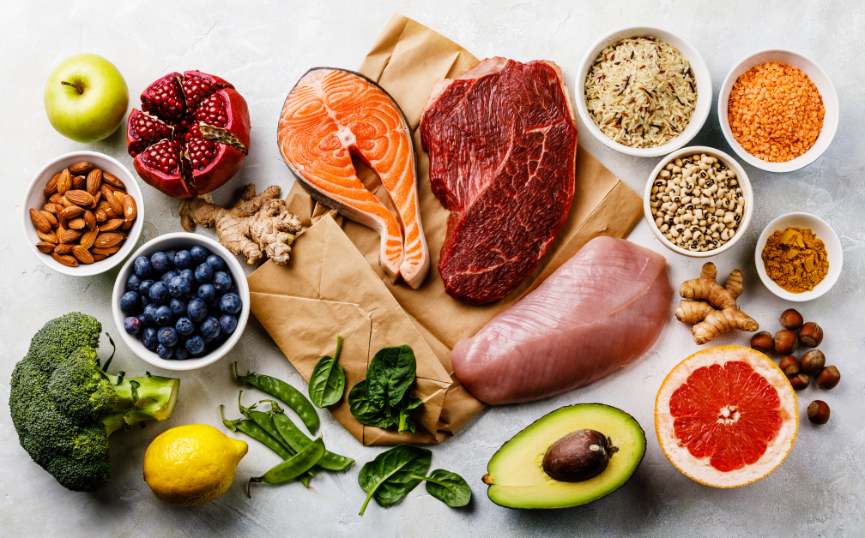The effect of serotonin on the human body | or what will make us happy?
Now at Vitamin360 we will take out our deep philosophical knowledge matured under the Greek olive trees and find out what is the secret of our happiness? What will make us happy and why does our happiness depend on a tiny bit of matter (that is, matter, if we’re talking about Greek analogies)? This substance is none other than serotonin!

Do you know what serotonin means? What causes a lack of serotonin? How can the optimal serotonin level be achieved? Okay, okay, you probably know the answer to these, but do you know what serotonin has to do with our tummies?
A happy introduction among the cooling oil trees
We can state few unquestionable facts about the functioning of human life. Two things are certain: everyone dies one day and we need certain nutrients and water to survive. In addition to this, we have to think deeply if we want to search for further complete findings – concerning the lives of all people. We are now writing two for you and you will soon see what the philosopichal introduction has to do with serotonin? For the happiness hormone.
First: the development of a disease is influenced by a sea of factors. Solving one such factor that damages the organism reduces the chance of developing diseases by a percentage. And when we get sick, reducing the same harmful effects improves the chances of recovery. On the contrary: the length of our lives is influenced by many factors, and with this we have arrived at the second fact.
Second: mental balance is one of the secrets of a long life. There is no doubt that everyone strives for happiness and that everyone finds their joy in something else. Sources of happiness are our goals, such as: family joy, physical pleasures, euphoria after sports, existential security, or the happiness that emerges after leaving the comfort zone. Some fullfil themselves at work, some travel, some raise children. Anything else and even all the sources of pleasures listed above can be a goal for a person at the same time.
The infinitely complex mechanism driving the feeling of happiness can be surprisingly simplified: certain activities increase the level of the happiness hormone (serotonin) and certain factors decrease it. The resultant of these two forces determines our level of happiness at every moment. This is why our moods fluctuate quite a bit throughout the day. Also, it’s not just serotonin that works alone! The interplay of serotonin and other hormones such as dopamin, cortisol, adrenalin and oxytocin basically determines our mood and excitement. Now let’s take a hard look at what serotonin is.
Meaning of serotonin
Serotonin – colloquially: the „happiness hormone” – is considered a neurotransmitter. In other words, serotonin creates a connection between nerve, muscle and gland cells. 90% of serotonin is produced by the gastrointestinal system and most of it is stored in blood platelets and in the brain (mainly in the hypothalamus), but the cells of the central nervous system also produce serotonin1.
Our bodies produces serotonin from the amino acid tryptophan. Interestingly, oral and intravenous serotonin do not have a direct effect because they are unable to cross the blood vessel wall and the blood-brain barrier. Tryptophan and the resulting 5-hydroxytryptophan (5-HTP), from which serotonin (5-hydroxytryptamine, i.e. 5-HT) is directly produced, can increase serotonin levels. In other words, tryptophan and 5-HTP have an indirect effect on serotonin1. Externally only tryptophan and 5-HTP can increase serotonin levels.
The effect of serotonin can be most effectively illustrated by the drug called methylenedioxymethamphetamine (abbreviated: MDMA, colloquially: ecstasy). MDMA drastically increases the user’s serotonin levels, probably because it inhibits the breakdown of serotonin.
The effects of MDMA8:
- Euphoria
- Sensation becomes more pleasant
- Comfort
- Empathy
- Possibly: lack of orgasm. Because serotonin mimics the euphoric state after orgasm10.
- Furthermore, MDMA stimulates the production of norepinephrine and dopamine hormones.
Serotonin stimulating factors2
Tryptophan supplement consumption: In Canada and some European countries, the amino acid tryptophan is considered a drug. The amino acid tryptophan can have such strong effects. However, tryptophan taken from food does not have the same effects as a dietary supplement. This is because tryptophan is transported by the same transport proteins that carry all the other large and neutral protein-building amino acids, and because tryptophan is the smallest amino acid in our body. In this way, the other (more common) amino acids simply „take up place” in front of tryptophan on the „bus”, or on the transport molecule5.
Physical exercise: as we get more and more tired during exercise, our serotonin level starts to rise4.
Sunlight: a positive correlation can be observed between the number of hours of sunlight and people’s serotonin levels. Conversely: in countries where the sun shines less, people are generally more lethargic3.
Psychotherapies: serotonin has been proven our mood, i.e. it make us happier, but the reverse is also true. Mood improvement guided by positive thoughts and impressions increases serotonin levels. Therefore, mood-enhancing therapies act as quasi-positive feedback6,7. Such as positive impressions can be: pleasant smells, delicious food, a kind touch or some beautiful sight.
Sleep: good quality sleep balances the cortisol level – thereby indirectly affecting the serotonin level. However, the effect is mostly felt the other way around, i.e. serotonin serves as a precursor to melatonin, our sleep hormone. This is somewhat contradictory to the fact that sunlight increases serotonin levels. According to the latest studies, serotonin stimulated while awake activates gene pathways that later (prolonged) exert their effect on sleep11,12

What lowers serotonin levels?
High cortisol level13: elevated stress hormones levels stimulate the breakdown a serotonin, resulting in lower serotonin levels.
Lack of sleep: sleep deprivation will result in elevated cortisol levels the following evening. In this way, lack of sleep indirectly reduces serotonin levels.
Deteriorated state of intestinal flora: if we consider that the enterochromaffin cells of the gastrointestinal system produce 90% of serotonin, this becomes clear. This makes sense of the gut-brain barrier, as well as the fact that our diet determines our mood – even if tryptophan taken in from food has no effect on serotonin levels. However, other dietary factors have an indirect effect on the health of the intestinal flora14. And the intestinal flora determines the amount of circulating serotonin.
What should we pay attention to in the diet to keep our serotonin levels at an optimal level?
It is worth reducing all factors that destroy the condition of the intestinal flora, such as:
- High intake of simple carbohydrates (white flour, sugar)
- Eating foods containing trans fats (hydrogenerated vegetable oils)
- Low fiber intake
- Antibiotic treatment
Furthermore, it is worthwhile to positively influence the health of our intestinal flora with the following changes:
- High fiber intake combined with high water consumption. The fibers function as prebiotics, i.e. they feed the beneficial microorganisms that make up the intestinal flora. If eating does not work, then use a food supplement containing prebiotic fibers.
- Consumption of Omega-3, i.e. fish oil (even as a food supplement).
- Periodic consumption of probiotics every 6-12 months.
- For more information, read our article about probiotics.
- Avoid overeating at times close to sleep!

What should we pay attention to in our lifestyle to keep our serotonin levels at an optimal level?
The recipe here is also relatively simple, it will only require adequate persistence!
- Do sports! As long as you don’t have the energy to deal with problems in the evening. Don’t try to solve your life at night! Dispel the negative emotions that arise in the dark with a little reading, breating techniques, meditation or anything that engages your attention and directs your thoughts in a positive direction. If you watch the telephone or TV in bed at night, set a blue light filter on your device.
- Cold shower15: cold therapies are one of the best ways to relieve the symptoms of depression. The cold is a kind of shock to the body (like training or a sauna), which has a high calming and pain-relieving effect after the temporary increase in stress hormone levels. Although warm sauna therapy can provide a solution for this16, regular sauna use is not available to many people. Cold water showers can be taken at any time in most households. Let's include it in our daily routine!
- Mental exercises: like meditation and chanting, they can greatly help to influence our thoughts in a positive direction.
- Physical exercises such as: yoga, Tai chi or qigong. They combine relaxing properties with physical exercise. They are one of the best forms of stress relief for active individuals.
- Breathing techniques: just to name a few: Wim Hof, alternating nasal breathing, Pranayama, Buteyko, 4-7-8.
If you have checked these and happiness eludes you, first of all look deep inside your soul: are you satisfied with your life?
- If not: don't be someone who only complains and doesn't do anything. List the factors that hurt you, but if you really wanted to, you could do something about them. Be honest with yourself (and if you don't harm others by doing so), then act against them. Make a change! Dare to change! If you change, believe me: your environment will change too!
- If yes, you are satisfied, then head to the webshop! Tryptophan and 5-HTP are also available in our webshop.

Tryptophan or 5-HTP? Which increases serotonin levels more effectively?
5-HTP no longer has to compete with other amino acids in transporters that transport amino acids. Thus, 5-HTP works faster and more efficiently than tryptophan. We at Vitamin 360 recommend that you start with the smallest dose - 50 mg. If it doesn't work, increase the dose to 100 mg and if it doesn't work for a shorter time (!!!) try 200 mg. Using higher doses is pointless and increases the chance of side effects.
Life Extension's optimized tryptophan capsule contains plant active ingredients that stimulate absorption and serotonin so that it does not have to compete with other amino acids!
It is important to remember that in the case of any food supplement that affects the nervous system, it is worth consulting a doctor before taking it, because weak attachments to the given substance may develop.
Consequences of low serotonin levels
Serotonin deficiency can play a role in the development of depression. Lethargy and low serotonin levels go hand in hand16. That is why we have written in detail about stress management methods.
Serotonin deficiency can also contribute to the development of the following conditions:
- Migraine
- OCD
- Tinnitus
- Fibromyalgia (chronic pain throughout the body)
- Bipolar disorder
- In infants: there is a risk of sudden infant death due to the abnormal functioning of brainstem neurons that produce serotonin.
Serotonin syndrome
Overstimulation of serotonin receptors causes serotonin syndrome, a life-threatening condition. Main symptoms of serotonin syndrome17:
- Confusion
- Diarrhea
- Movement coordination disorders
- Fear of death
- Hallucination
- Restlessness, uncontrolable excitement
- Chills, sweating, shivering, trembling
- Jerking
- Fever
The following drugs or their combinations most often lead to serotonin syndrome17:
- Drugs such as: Ecstasy, LSD, amphetamine, mescaline.
- Antidepressant: selective serotonin reuptake inhibitors (SSRIs): fluoxetine, fluvoxamine, sertraline, citalopram, paroxetine.
- Antidepressant: serotonin Modulator and Stimulants (SMS): vilazodone, vortioxetine.
- Antidepressant: serotonin and norepinephrine reuptake inhibitors (SNRIs): trazodone, venlafaxine.
- Antidepressant: dopamine reuptake inhibitor: bupropion
- Painkillers such as fentanyl or tramadol
- Migraine drugs: zolmitriptan, sumatriptan.
- L-[tryptophan] amino acid
- Lithium as a mood stabilizer
- Antiemetics: metoclopramide, granisetron, ondansetron.
- Dextromethorphan as a cough suppressant
- Herbal preparations: ginseng and St. John's wort (a dose also makes the poison from plant extracts!)
Used sources
- Bakshi A, Tadi P. Biochemistry, Serotonin. [Updated 2022 Oct 5]. In: StatPearls [Internet]. Treasure Island (FL): StatPearls Publishing; 2024 Jan-. Available from: https://www.ncbi.nlm.nih.gov/books/NBK560856/
- Young SN. How to increase serotonin in the human brain without drugs. J Psychiatry Neurosci. 2007 Nov;32(6):394-9. PMID: 18043762; PMCID: PMC2077351.
- Ferraro JS, Steger RW. Diurnal variations in brain serotonin are driven by the photic cycle and are not circadian in nature. Brain Res 1990;512:121-4.
- Post RM, Goodwin FK. Simulated behavior states: An approach to specificity in psychobiological research. Biol Psychiatry 1973;7:237-54.
- Wurtman RJ, Hefti F, Melamed E. Precursor control of neurotransmitter synthesis. Pharmacol Rev 1980;32:315-35.
- Peirson AR, Heuchert JW. Correlations for serotonin levels and measures of mood in a nonclinical sample. Psychol Rep 2000;87:707-16
- Kjaer TW, Bertelsen C, Piccini P, et al. Increased dopamine tone during meditation-induced change of consciousness. Brain Res Cogn Brain Res 2002;13:255-9.
- Yasaei R, Saadabadi A. Methamphetamine. [Updated 2023 May 1]. In: StatPearls [Internet]. Treasure Island (FL): StatPearls Publishing; 2024 Jan-. Available from: https://www.ncbi.nlm.nih.gov/books/NBK535356/
- Humble MB, Bejerot S. Orgasm, Serotonin Reuptake Inhibition, and Plasma Oxytocin in Obsessive-Compulsive Disorder. Gleaning From a Distant Randomized Clinical Trial. Sex Med. 2016 Sep;4(3):e145-55. doi: 10.1016/j.esxm.2016.04.002. Epub 2016 Jun 17. PMID: 27320409; PMCID: PMC5005298.
- Passie T, Hartmann U, Schneider U, Emrich HM, Krüger TH. Ecstasy (MDMA) mimics the post-orgasmic state: impairment of sexual drive and function during acute MDMA-effects may be due to increased prolactin secretion. Med Hypotheses. 2005;64(5):899-903. doi: 10.1016/j.mehy.2004.11.044. PMID: 15780482.
- Leproult R, Copinschi G, Buxton O, Van Cauter E. Sleep loss results in an elevation of cortisol levels the next evening. Sleep. 1997 Oct;20(10):865-70. PMID: 9415946.
- Rancillac A. Serotonin and sleep-promoting neurons. Oncotarget. 2016 Nov 29;7(48):78222-78223. doi: 10.18632/oncotarget.13419. PMID: 27861160; PMCID: PMC5346632.
- Tafet GE, Toister-Achituv M, Shinitzky M. Enhancement of serotonin uptake by cortisol: a possible link between stress and depression. Cogn Affect Behav Neurosci. 2001 Mar;1(1):96-104. doi: 10.3758/cabn.1.1.96. PMID: 12467107.
- Appleton J. The Gut-Brain Axis: Influence of Microbiota on Mood and Mental Health. Integr Med (Encinitas). 2018 Aug;17(4):28-32. PMID: 31043907; PMCID: PMC6469458.
- Shevchuk NA. Adapted cold shower as a potential treatment for depression. Med Hypotheses. 2008;70(5):995-1001. doi: 10.1016/j.mehy.2007.04.052. Epub 2007 Nov 13. PMID: 17993252.
- Cowen PJ, Browning M. What has serotonin to do with depression? World Psychiatry. 2015 Jun;14(2):158-60. doi: 10.1002/wps.20229. PMID: 26043325; PMCID: PMC4471964.
- A szerotonin-szindróma. [2014. október 1-i dátummal az eredetiből archiválva]. (Hozzáférés: 2014. szeptember 30.)


